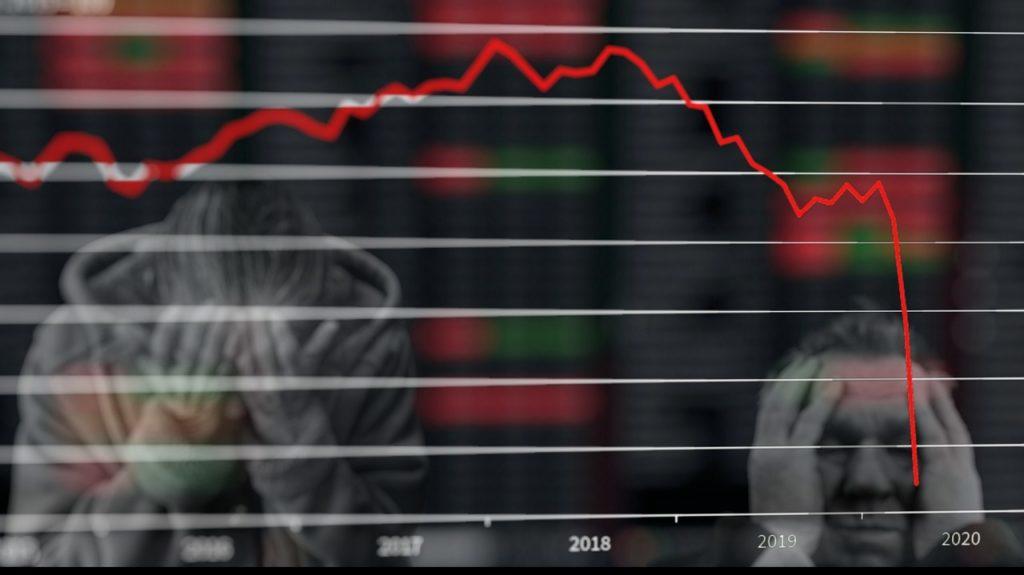When governments across the US forced businesses to close down in response to the coronavirus pandemic, everybody assumed the layoffs would be temporary. Despite the huge surge in unemployment, the expectation was people would quickly return to work once the crisis passed and the economy opened up again. But as the pandemic stretches into its eighth month, millions of Americans remain out of work and economists say many of those “temporary” job losses have become permanent.
Millions of Americans have returned to work as expected. The unemployment rate has nearly halved to 7.9% since April. But nearly 13 million Americans remain out of work. That’s about 7 million more than pre-pandemic levels.
According to the Bureau of Labor Statistics, the number of job losses categorized as permanent grew by 345,000 to 3.8 million people in September. In other words, nearly 4 million unemployed Americans have no prospects of returning to work.
The number of long-term unemployed – people out of work for a period exceeding six months – has ballooned. According to the Bureau of Labor Statistics, around 2.4 million Americans were unemployed for 27 weeks or more in September, up 781,000 from the previous month. The last time we saw this kind of jump in long-term unemployment was during the Great Recession.
Economists crunching the numbers say the trend shows that some layoffs once thought temporary have become permanent. To make matters worse, companies have begun initiating layoffs on a trajectory similar to a traditional recession, according to an article published by CNBC
Meanwhile, months since the lockdowns were generally lifted, hundreds of thousands of Americans continue to apply for unemployment for the first time every week. Last week, more than 800,000 people filed first-time unemployment claims. That compares with 188,000 first time claims during the same period in 2019.
And tens of thousands of people will get pink slips in the coming weeks as the long-term economic damage caused by government lockdowns in response to the coronavirus pandemic begin to ripple through the economy. Regal Cinemas closed all of its locations last week with no timetable for reopening. Disney announced it would lay off 28,000 workers. US airlines are shedding jobs at a dizzying pace.
“We’re still at a high level of layoffs in the economy,” Susan Houseman, VP and research director at the W.E. Upjohn Institute for Employment Research, told CNBC.
“The new job losses will, by and large, be perceived as permanent.”
In a recent podcast, Peter Schiff said he thinks a lot of the people who have gone back to work in recent weeks will eventually find themselves in the unemployment line again.
I think a lot of these people who have been recalled, who have come back to work, I think ultimately their employers are going to realize, after the fact, that they don’t really need a lot of these workers, and a lot of these workers are going to be re-fired. Except next time it is going to be permanent, not temporary.”
There is also the looming prospect of more corporate bankruptcies and business closures, putting more pressure on the jobs market. Large company bankruptcies have already surged to a level not seen since 2010 and more than 420,000 small businesses have closed their doors permanently since the beginning of the pandemic. That represents a staggering 7.1% of all small businesses. Brookings estimates that the US economy has lost some 4 million jobs in the small business sector “that will only return with the creation of new businesses.”
The current state of the jobs market dovetails with our report last month that suggested lockdowns may have permanently scarred the labor market and there are signs of deep wounds that won’t quickly heal. In a nutshell, a lot of people will likely never return to work.
And as Peter Schiff said in a recent interview on RT, it doesn’t appear to matter what letter you stick in front of the word “recovery.”
I don’t care what letter you want to use to describe it. My problem is with the word recovery. Because I don’t think we’ve recovered at all. Sure, there has been a recovery in the stock market in that the market recovered what it lost in the early days of COVID. And yes, this recession that we’re currently in began with a very substantial collapse. And yes, there’s been a bit of a bounce off of that collapse. But we’re still in recession. So, I don’t know if recovering to being in a less-severe recession than we were in at one point really qualifies as a recovery.”
